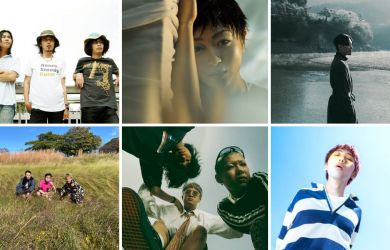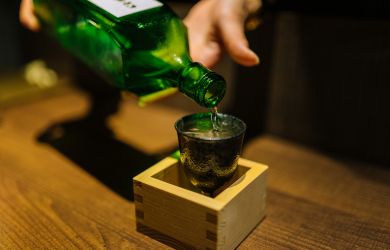
Originally published on metropolis.co.jp on July 2013

The Defense of Marriage Act (DOMA) may have just been struck down, but pop icon Cyndi Lauper has been ahead of the curve on gay rights for decades.
“I got into it because when I sing for people I see their faces, I hear them, it’s not like I’m blind,” she says from her home in New York City ahead of an appearance at the Summer Sonic festival near Tokyo on August 11. “I thought they [LGBTs] were a creative group of people, and as I got to know them I got to see something was wrong. It upset me that no one else was saying anything.”
Lauper created her True Colors Tour for Human Rights in 2007 and 2008, named after the title track of her second album, “True Colors,” a song that had become an anthem for the LGBT community. The nationwide tour featured artists like Deborah Harry and the B-52s. She followed that up with her True Colors fund to support anti-LGBT discrimination.
“One thing led to another and we did the tour,” says Lauper, who had been involved in gay rights activism for years and whose sister is a lesbian. “Then we decided after the tour that people still needed help, so we opened the fund. Then we realized the only way we can really help is to make it bigger. Then I realized this is great, so we set up a foundation and helped HIV sufferers. Doing this makes me able to help in a way that really does help, because I don’t want to do a vanity charity project—I ain’t got time for that.”
Lauper is now known globally for her LGBT activism. In Japan, however, this aspect of her career gets short shrift. Instead, she is celebrated here for her kitschy, hummable girl-pop—and her stubborn refusal to leave the country when the Tohoku earthquake struck during her 2011 tour.
“We didn’t know what was going on at first,” she recalls about the harrowing day of March 11. “People kept saying, you can go home. But when I saw the airport and saw how the people were there, I felt, I’m not leaving, because maybe I could be a distraction for them. The first time I came to Japan and sang ‘True Colors’ in 1986 at the Budokan, they sang it back to me. So I felt if I left what the hell would that song really mean? So I didn’t. Not only didn’t I, but the promotion team, the Kyodo people, they stayed on the road too just like me. So in a lot of ways, I thought the people were inspiring.”
Lauper’s connection to Japan long predates the disaster. With her reality TV show Cyndi Lauper: Still So Unusual, Tony-winning musical Kinky Boots, and bestselling autobiography Cyndi Lauper: A Memoir, 2013 has proven to be a year of remarkable resurgence for Lauper. But there were times when it seemed like Japan was the only market still standing behind her music.
“The Japanese fans and companies were great people and really stuck by me,” she recalls. “When the Americans made me feel like I should crawl and fall off the edge of the earth, these people would come to me and say, ‘Please make music—we love your music.’ And these are the same people that are suffering and you think I’m going to walk away? I don’t forget easily, and I was having nightmares about the Japanese.”
Lauper’s book is out in Japanese (on March 11), and she believes that it has messages for Japanese women who find themselves being manipulated by powerful men—in the way that Lauper was early in her career. “I think it’s important for women to know that this is the story of someone who wanted to walk her own path and not always be told how to do everything,” she says, “because honestly, if I was the artist, it was my art, and if it was my voice it was my voice, not somebody else’s, being like a Svengali. I’m not interested. I’m interested in learning as much as I can and expressing those experiences in my own voice.”
Lauper has been visiting Japan for decades (you can YouTube her 1986 Budokan performance), and counts Yoko Ono as one of her friends. Her interactions with the country provide her with a good understanding, and sympathetic view, of Japan’s strengths and weaknesses.
“The great thing about the Japanese people is how caring they are for each other,” she says, “but it’s also hard to be an individual in a society where being an individual is not promoted in any part of the society.”
She says Japanese artists need to think for themselves. “When you’re creating you should definitely take a step back and think about what it is you want to do,” she says.
“It’s good to know you can have a vision and see what it is you need to do and start climbing Mt. Everest. If you know what you want to do and somebody tells you different, learn from them and take it and put it toward your cause. You can get there—you can do it.”
Japan does seem to have embraced Lauper as an empowering role model, particularly for women. Maybe, with time, it will embrace her as an icon of gay rights—one that happens to be married and a mom—with equal passion.





